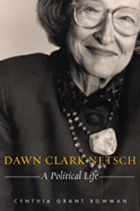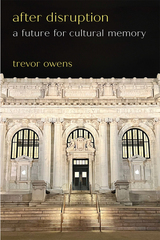
Illinois Democratic politics has recently produced the most skilled and inspirational politician in memory . . . and has also reminded us of the need for further reform. It is fitting, then, that the latest installment of the Chicago Lives series turns to Dawn Clark Netsch, a leading reformer of Illinois politics since the 1950s and the first woman major party nominee for governor of Illinois.
Netsch was a pioneer, or the first of her gender, in almost every endeavor she undertook. From the very beginning of her career, when she led the move to desegregate Northwestern University's undergraduate dorms, her passion for social justice extended beyond the rights of women to rights for racial minorities and those of all sexual orientations. Bowman charts Dawn Clark Netsch's remarkable political career, from her work behind the scenes as assistant to Governor Otto Kerner and as a participant in the 1970 Constitutional Convention to her later service in elected office, first as Illinois state senator for eighteen years and later as Illinois comptroller, and culminating in her historic run for governor in 1994. Throughout, Netsch lost neither her genteel yet unpretentious demeanor, nor her passion for progressive politics as exemplified by her early mentor, Governor Adlai E. Stevenson.

The U.S. Supreme Court—at least until Bush v. Gore—had seemed to float along in an apolitical haze in the mind of the electorate. It was the executive branch and the legislative branch that mucked about in politics getting dirty, the judicial branch kept its robes—and nose—clean. The U.S. Supreme Court and the Electoral Process makes it abundantly clear however that before, during, and after the judicial decision that made George W. Bush the President of the United States, everything was, is, and will likely be, politics-including the decisions handed down by the highest court in the land.
This revised and updated edition takes into account not only the recent famous (or infamous, depending on the reader's point of view) judicial decision on the Presidency, but a myriad of others as well in which the U.S. Supreme Court has considered the constitutionality of a wide range of issues involving voting and elections, representation, and political participation. Practitioners and academics in both law and political science examine a number of court actions that directly affect how we choose those who govern us, and how those decisions have affected our electoral politics, constitutional doctrine, and the fundamental concepts of democracy, including: racial redistricting, term limits, political patronage, campaign finance regulations, third-party ballot access, and state ballot initiatives limiting civil liberties.
Of the first edition, CHOICE said, The U.S. Supreme Court and the Electoral Process "plumbs the Supreme Court's constitutive apolitical role as 'primary shaper of the electoral system' and reveals the pervasive involvement of the Court in the political process."
READERS
Browse our collection.
PUBLISHERS
See BiblioVault's publisher services.
STUDENT SERVICES
Files for college accessibility offices.
UChicago Accessibility Resources
home | accessibility | search | about | contact us
BiblioVault ® 2001 - 2024
The University of Chicago Press









